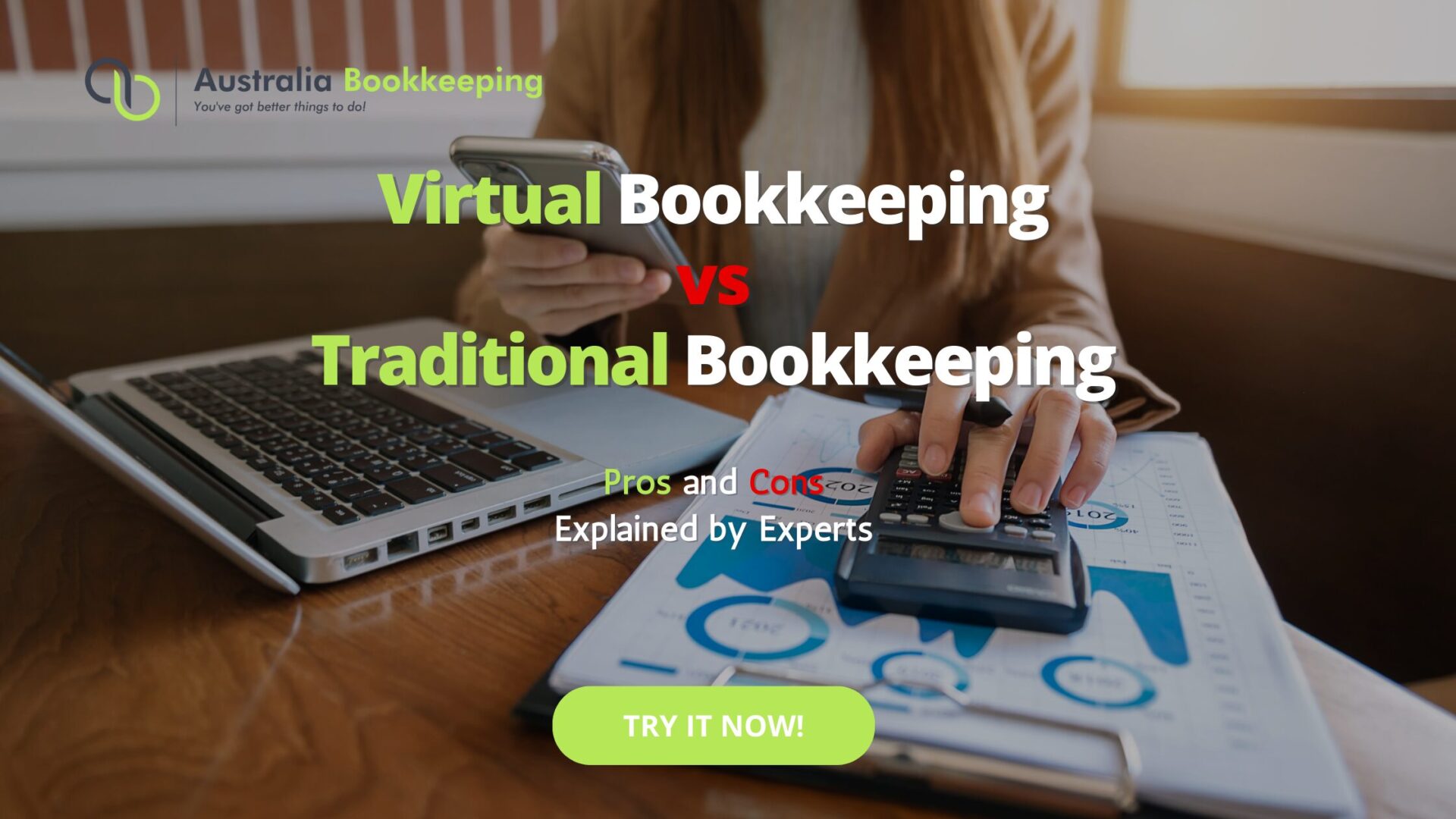Virtual Bookkeeping vs. Traditional Bookkeeping
In today’s digital age, businesses have a choice when it comes to managing their financial records: traditional bookkeeping or virtual bookkeeping. While both methods have their strengths, understanding the differences and weighing the pros and cons is crucial for making the right decision for your business.
Schedule a free call with the most reliable and affordable bookkeepers in Australia.
The Pros of Virtual Bookkeeping
Virtual bookkeeping, also known as cloud bookkeeping, offers a range of benefits that are appealing to many modern businesses:
- Flexibility: Virtual bookkeepers can access your financial data remotely, eliminating the need for on-site visits and offering greater flexibility in scheduling and communication. This is particularly beneficial for businesses with remote teams or those seeking to minimize office space.
- Increased Security: Cloud-based accounting software typically offers robust security measures, such as password protection, two-factor authentication, and real-time data encryption, reducing the risk of data breaches and unauthorized access.

- Real-Time Data: Virtual bookkeepers work with real-time data, allowing for more accurate and up-to-date financial insights. This can help you make more informed decisions, identify potential problems early, and improve cash flow management.
- Cost Savings: Virtual bookkeeping can save you money on office space, supplies, and in-house staff. You also often pay for cloud software on a subscription basis, which can be more budget-friendly than purchasing software outright.
- Improved Collaboration: Virtual bookkeeping makes it easier for you, your bookkeeper, and your accountant to collaborate seamlessly, sharing data and insights in real-time.
- Access to Expertise: You can often access a wider pool of qualified and experienced virtual bookkeepers who specialize in specific industries or have advanced skill sets.
The Cons of Traditional Bookkeeping
While traditional bookkeeping still has its place, it also comes with certain drawbacks:
- Limited Flexibility: Traditional bookkeepers require on-site access, which can be time-consuming and inconvenient for both parties.
- Security Risks: Manually stored financial records are more susceptible to theft, damage, or loss, posing a significant security risk.

- Delayed Data: Traditional methods often involve manual data entry and processing, which can lead to delays in accessing accurate and up-to-date financial information.
- Higher Costs: Traditional bookkeeping may involve higher costs related to office space, supplies, and full-time staff.
Regulatory Compliance
It’s important to remember that both virtual and traditional bookkeeping need to comply with Australian tax laws and regulations.
- Compliance: Ensure that any bookkeeping service you choose is registered with the Australian Tax Practitioner’s Board and holds appropriate Professional Indemnity Insurance.
- Engagement Agreements: Sign an engagement document or service delivery agreement that outlines the scope of services, pricing, and confidential handling of your financial data.
Technological Evolution
The ongoing evolution of technology continues to shape the bookkeeping landscape.
- Cloud Software: Cloud-based accounting software is constantly being updated with new features and integrations, making virtual bookkeeping more efficient and powerful.
- Automation: Automation tools are streamlining routine tasks, freeing up bookkeepers to focus on higher-level analysis and advisory services.
- Data Analytics: Data analytics tools are providing deeper insights into financial data, helping businesses make better decisions and identify trends.
Testimonials
Here is what our client had to say about our services:
“We cannot speak highly enough about our experience working with Maru and his exceptional team. Over the past 10 years, we have dealt with multiple bookkeeping firms, but none have come close to the level of excellence that Maru and his team have consistently demonstrated.From the very beginning, it was clear that accuracy, professionalism, and efficiency were at the forefront of their priorities.” – Bianca Holgate
Conclusion:
Both virtual and traditional bookkeeping have their merits. The best choice for your business depends on your individual needs, budget, and preferences.
- Virtual bookkeeping offers flexibility, increased security, real-time data access, and cost savings, making it an appealing option for many modern businesses.
- Traditional bookkeeping still provides valuable services for businesses with specific requirements, but it may not offer the same level of flexibility, security, or cost efficiency as virtual bookkeeping.
Schedule a free call with the most reliable and affordable bookkeepers in Australia!


